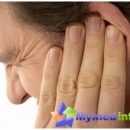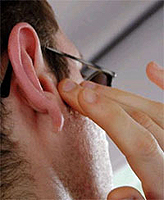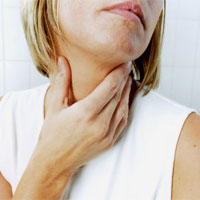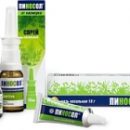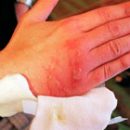Causes of inflammation of the middle ear, treatment and forecast. First aid for the disease.
Content
Otitis
IN
Depending on the duration of Otitis speak acute (up to 3 weeks),
Subacute (from 3 weeks to 3 months) or chronic (more than 3 months)
Otitis. In addition, purulent is distinguished (in the presence of a purulent discharge
in the ear) and unmarried otitis.
Causes of Otita
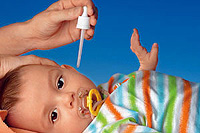
Installed
Two factors responsible for the development of the disease: a violation of the function
The auditory pipe and the presence of infection (viruses and / or bacteria) on average
ear. Hearing (Evstachiev) pipe is used to level pressure in
drum cavity and atmospheric. Thanks to the movement of cereal,
located in the auditory tube, the mucus moves towards
middle ear to nasophary.
To the blockage of the hearing pipe can lead
Elevation of the mucous membrane (allergic or due to the upper infection
respiratory tract), foreign body, tumor or adenoid. As a result
The blockage of the auditory pipe in the drum cavity is developing negative
pressure. This leads to mucus and nasopharynx bacteria in
middle ear. Otitis's causal factors include injury,
Immunoglobulin deficiency, and possibly genetic
predisposition.
Manifestations otita
Classical manifestations of acute purulent otitis are acute
Start (within a few hours), one-sided pain in the ear,
Fever and runny nose. In infants, signs of otitis can be
Anxiety, irritability and sipping for a patient's ear. Children
older age can complain about sore throat and feeling
Magnification and pressure in the ear. Less often dizziness,
drowsiness, headache, loss of appetite, nausea, vomiting, diarrhea.
At about 70 - 80% of cases, the average otitis is preceded by infection
Upper respiratory tract.
Treatment Otita
For the treatment of acute purulent otitis apply
Antibiotics (Amoxicillin, Amoxiclav, Cefaclor, Cefisim, Erythromycin
and etc.) in age dosages.
Since in most cases
acute otitis pathogen is not determined, the drugs of choice are
Antibiotics acting on microorganisms most often causing
disease. These drugs are listed above.
For most
Patients with a drug selection is amoxicillin in tablets (children -
syrup), which is effective in relation to major pathogens,
relatively rarely causes adverse reactions (rash and diarrhea) and
Differs relatively small cost. If there is a patient
Amoxicillin allergies are recommended erythromycin.
Duration
Antibacterial therapy with acute otitis is usually 10 days.
When unsatisfactory response to treatment can be held
an additional course, however, in most cases there is no
necessity.
In addition to antibiotics with acute otte, antiallergic drugs are prescribed (Supratin, Claritin, Tuevel).
Ostitis forecast
Adult state. In rare cases, however, chronic develops
otitis. In adults, the disease occurs somewhat harder.
Intracranial (for example, meningitis) and extra charge (for example, labyrinthitis
or chronic touginess) complications are rare.

